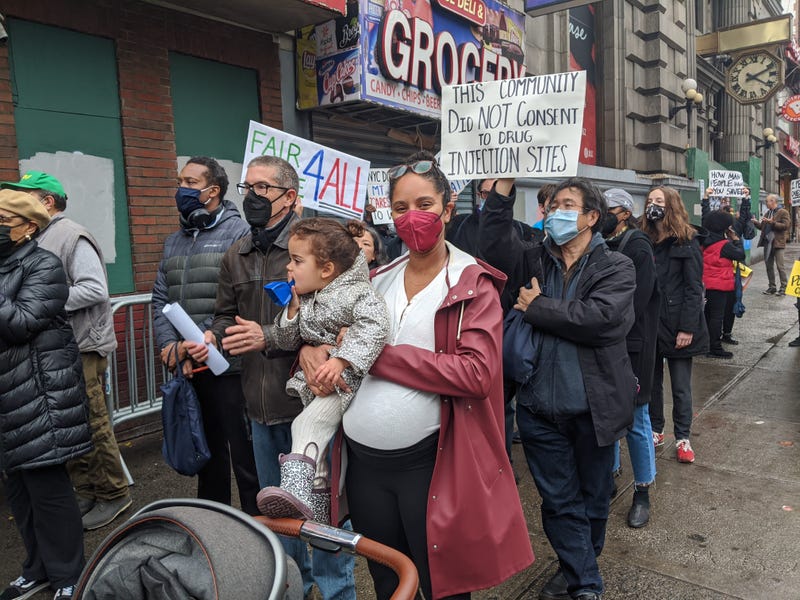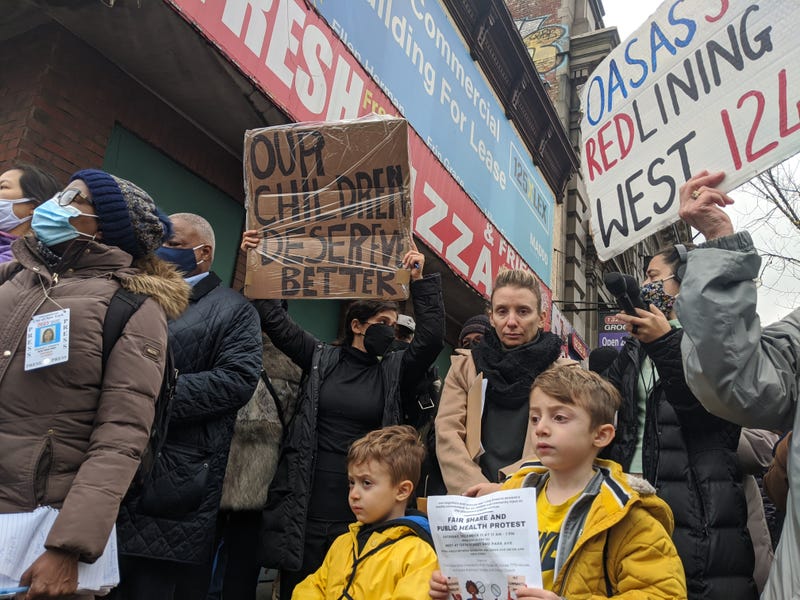
NEW YORK (WCBS 880) -- Advocates and Harlem residents Saturday protested against what they call an “oversaturation” of drug treatment centers in the area, but others showed up to push back.
Felicia Pullen, who herself is in recovery and provides recovery support to others, shook her head at those who were saying “not in our backyard” to new services provided by the city.
"Why are the people the pawns for the individuals that are comfortably housed and homed in our community?” said Pullen.
The city opened two supervised drug injection sites days ago — one in Harlem, the other in Washington Heights. The privately run sites provide a monitored place for drug users to partake.
The sites don’t sell drugs — users bring their own — but have monitors who watch for signs of overdose and can administer an antidote if needed. Sterile syringes and other accoutrements are usually on hand. City Health Commissioner Dr. Dave Chokshi said the facilities would also offer referrals to drug treatment and other services.

Proponents of the facilities, including the mayor, say they’re pragmatic, life-saving tools for stopping overdoses, reducing HIV infections and helping curb drug use in public places.
Protesters and supporters gathered at 125th Street and Park Avenue to voice their conflicting thoughts on the controversial program.
One person who described Harlem as a “dumping ground” said they wanted to see sites more spread around the city.
"We just want an equitable placement of these facilities, they are disproportionately in this neighborhood, East Harlem, West Harlem, Central Harlem, new ones every day,” they told WCBS 880.
Rep. Nicole Malliotakis introduced legislation in Congress this week to withhold federal funding from the centers, saying they violate state and federal law.
Mayoral spokesperson Mitch Schwartz defended the criticism, citing the recent statistics.
"These two sites have already reversed 17 overdoses. Those people are our fellow New Yorkers — and without Overdose Prevention Centers, we could have lost them forever,” he said.
Rev. Al Sharpton's National Action Network and other organizations were said to be behind the protest. The group and others argue the East Harlem Overdose Prevention Center cultivates the city's decades-long issue with systemic racism.
The Associated Press contributed to this report.


